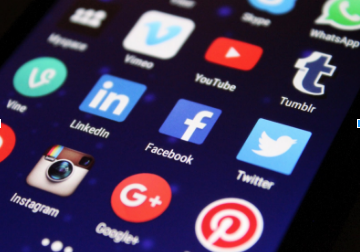Over the weekend The New York Times reported that a political data firm called Cambridge Analytica accessed information from 50 million Facebook users without their knowledge
Cambridge Analytica gained access to user information by offering to pay individuals who downloaded an app and responded to an “academic study” in the form of a quiz, reports say.
The political data firm then gained access to all of the friends of each participant without their knowledge and sold that information to third parties as a way to sell targeted political advertisements.
The recent scandal, adds to a growing number of critics who see Facebook as more of a “social-engineering tool” than a social media platform. In addition to backlash from investors this week, many users have opted to take part in a “delete Facebook” campaign which could accelerate Facebook’s already decreasing number of users.
A survey conducted in December 2017 by research company, Hill Holliday said that more than half of young adults ages 18 to 24 said they’re “seeking relief from social media.”
The findings bust the myth that people are becoming addicted to social media, and instead points to a collective social media fatigue.
Christian Tyler, a film student living in Fresno, said he deleted his Facebook after the 2016 elections.
“It became a source of anxiety,” Tyler said. “Everyone was sharing fake news stories and spreading conspiracy theories. It just got to be too much. I was getting into arguments with friends over the internet, so I deactivated my account.”
Tyler said he doesn’t miss the social media app and wishes that more people would consider deleting it.
“There is so much misinformation out there,” Tyler said. “And people don’t want to do the work to check facts or sources, so arguing with them is pointless. I feel so relieved not having a Facebook anymore.”
The term “fake news” is similar to the Oxford Dictionaries’ 2016 word of the year, ‘post-truth’. A term that is defined as “relating to or denoting circumstances in which objective facts are less influential in shaping public opinion than appeals to emotion and personal belief.”
If we are living in a post-truth world, then recent studies show that the idea of fake news is a major source of worry for Americans.
Pew Research Center found that 64 percent of adults surveyed after the 2016 elections “believe fake news stories cause a great deal of confusion” and 23 percent said they had shared fake news by mistake or in some cases on purpose.
Elizabeth Whitney, a Fresno State student majoring in recreation services, said that she had shared fake news a few times during the election.
“I shared a few articles that turned out to be fake news.” Whitney said. “When something pops up in your news feed it’s so easy to just hit the share button without thinking twice. So I definitely shared a few things by accident.”
Whitney said she has no plans of deleting her Facebook, but plans to be more careful about what she shares on her news feed.
“I’m definitely worried about fake news,” Whitney said. “I just make sure to actually read everything I post and check sources. It’s a shame that there aren’t ways for Facebook to fix the issue, but I also think it’s my job to verify things before I post them to my news feed.”
Living in a post-truth world presents unique and often terrifying challenges for our society, but according to Tyler the long-term effects are what frighten him the most.
“I just see teenagers glued to their cellphones,” Tyler said. “They have no idea half of what you see on the internet is fake. There is no telling what that type of exposure is doing to the next generation.”




